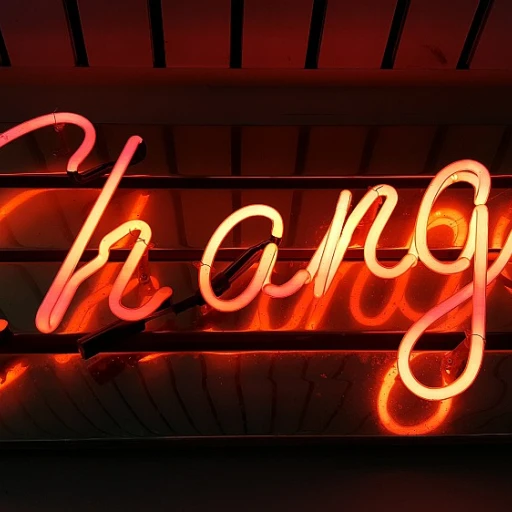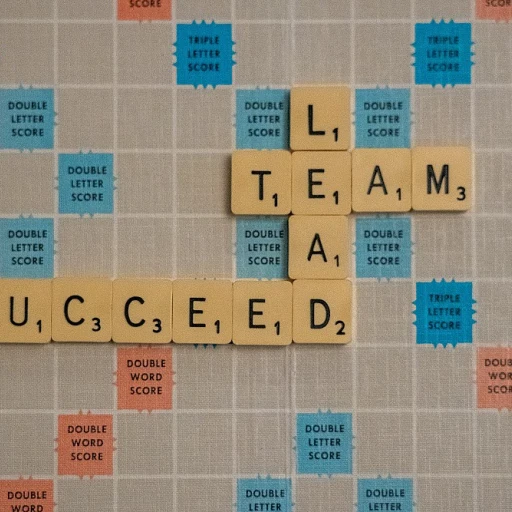
Understanding the importance of unique job interview questions
Why Traditional Interview Questions Fall Short
When it comes to hiring, many companies rely on common interview questions like “Tell me about yourself” or “What are your strengths and weaknesses?” While these can help break the ice, they often fail to reveal how a candidate will truly perform in the role or fit with the team. Relying on standard questions can make it difficult to assess unique skills, problem solving abilities, and how someone will contribute to the company culture over the long term.
The Value of Unique Interview Questions
Unique interview questions are designed to go beyond the basics. They help hiring managers uncover a candidate’s work style, adaptability, and approach to real-world challenges. For example, asking a candidate how they would handle a sudden change in project scope can reveal their flexibility and communication skills. These types of questions help identify not just what a candidate knows, but how they think and interact with team members.
- Better insights: Unique questions encourage candidates to share specific examples from their career, offering a clearer picture of their experience and skills.
- Company fit: Understanding how a candidate aligns with your company’s values and work environment is crucial for long-term success.
- Engagement: Creative questions can make the interview process more engaging for both the candidate and the hiring manager, leading to more honest and thoughtful answers.
Setting the Stage for Innovation in Hiring
As the hiring process evolves, so does the need for more effective interview questions. Companies are now looking for ways to design questions that not only assess technical skills but also evaluate how a candidate will work within a team and contribute to the company’s goals. This shift is driving the adoption of new tools and approaches, including artificial intelligence, to help hiring managers craft the best possible interview experience.
For those interested in how technology can support these efforts, exploring how AI tools can enhance recruitment and interview processes offers valuable insights into the future of hiring.
How artificial intelligence is changing interview question design
AI’s Role in Shaping Modern Interview Questions
Artificial intelligence is rapidly transforming how companies approach the job interview process. Instead of relying solely on traditional or common interview questions, organizations are now using AI to generate unique interview questions tailored to the specific role, team, and company culture. This shift is helping hiring managers and recruiters uncover deeper insights into a candidate’s skills, work style, and long-term potential.
AI-driven systems analyze vast amounts of data from previous interviews, job descriptions, and successful hires. By doing so, they can suggest questions that go beyond the basics and address the real needs of the team and company. For example, AI can help identify which questions will best reveal a candidate’s problem solving abilities or how well they might fit with existing team members.
- Personalization: AI can generate interview questions that reflect the specific requirements of the job and the company’s work environment.
- Efficiency: Automated tools save time for hiring managers by quickly producing relevant questions and example answers.
- Consistency: AI ensures that all candidates are asked questions that are fair and aligned with the company’s values, reducing the risk of bias.
With these capabilities, AI is not just making the hiring process faster—it’s also helping companies find the best candidates for each role. The technology supports hiring managers in designing questions that assess both technical skills and soft skills, such as teamwork and adaptability. This approach leads to a more comprehensive understanding of each candidate and supports better hiring decisions.
To learn more about how conversational AI is impacting HR practices in different regions, you can read this in-depth look at the impact of conversational AI in Southeast Asia’s HR sector.
Examples of AI-generated unique job interview questions
Fresh Approaches to Interview Questions with AI
Artificial intelligence is opening up new possibilities for designing interview questions that go beyond the usual checklist. Instead of relying on common interview questions, AI can analyze job requirements, company culture, and team dynamics to generate unique interview questions tailored to each role. This helps hiring managers dig deeper into a candidate’s problem solving skills, work style, and long term fit within the team.
- Scenario-based questions: AI can create realistic scenarios that reflect the actual work environment. For example, “Describe a time when you had to resolve a conflict between team members with different work styles. What steps did you take and what was the outcome?” This question helps assess a candidate’s ability to handle team dynamics and adapt to the company culture.
- Role-specific challenges: By analyzing the skills needed for a job, AI can generate interview questions that test relevant abilities. For instance, “How would you approach optimizing a process that is slowing down your team’s productivity?” This question gives insight into the candidate’s problem solving approach and their understanding of the role.
- Behavioral insights: AI can suggest questions that reveal how candidates handle stress, change, or feedback. An example answer to “Tell us about a time you received constructive criticism. How did you respond and what did you learn?” can help the hiring manager evaluate emotional intelligence and growth mindset.
- Company culture fit: Unique interview questions like “What does an ideal work environment look like for you, and how do you contribute to building it?” help both the candidate and the company assess alignment in values and expectations.
These AI-generated questions help hiring teams move beyond generic questions and focus on what truly matters for the job and the company. They also support a more structured and fair hiring process, as each candidate is evaluated on relevant and consistent criteria. For more on optimizing your hiring process with data-driven approaches, check out this resource on measuring and improving executive hiring with optimization metrics.
Balancing creativity and relevance in AI-powered questions
Finding the Right Mix: Creativity Meets Job Relevance
Artificial intelligence is making it easier to generate unique interview questions that go beyond the usual "Tell me about yourself" or "What are your strengths?". However, the challenge is ensuring these questions are not just creative, but also relevant to the job, the company, and the candidate’s potential for success. A question that is too abstract or unrelated to the role might confuse candidates or fail to reveal the skills and qualities you need. For example, asking "If you could be any animal, what would you be?" might spark interesting answers, but does it really help you assess a candidate’s problem solving skills or fit with your team? On the other hand, questions that are too focused on technical skills or past experience can miss out on understanding a candidate’s work style, adaptability, or alignment with company culture. The best AI-powered interview questions strike a balance. They are unique enough to encourage authentic responses, but still tied to the core requirements of the job and the work environment.- Consider the role and the team: Will the question help you understand how the candidate will work with team members or handle real challenges?
- Think about long term fit: Does the question reveal how the candidate’s career goals align with the company’s direction?
- Focus on skills and values: Is the question designed to uncover both technical skills and soft skills like communication or adaptability?
Avoiding bias and ensuring fairness with AI in interviews
Mitigating Bias in AI-Driven Interview Questions
Artificial intelligence is transforming the hiring process, but it comes with its own set of challenges. One of the most pressing concerns is ensuring that AI-generated interview questions are fair and unbiased. While AI can help create unique interview questions and streamline the process, it can also unintentionally reinforce existing biases if not carefully managed. AI models learn from historical data. If that data contains biased patterns, the questions generated may reflect those same issues. For example, if past hiring favored a certain work style or background, the AI might prioritize similar traits in its questions, potentially overlooking candidates with different but valuable skills. This can impact the diversity of your team and the overall company culture. To address this, companies should:- Regularly audit AI-generated questions for fairness and relevance to the role
- Involve a diverse group of team members in reviewing and refining the questions
- Use clear criteria to evaluate both questions and candidate answers, ensuring they align with the company’s values and long-term goals
- Test questions with a variety of candidates to identify any unintended patterns or gaps
Practical steps for integrating AI into your interview process
Steps to Seamlessly Introduce AI into Your Interview Workflow
Integrating artificial intelligence into your hiring process can seem daunting, but breaking it down into practical steps helps ensure a smooth transition. Here’s how you can start using AI to enhance your job interview experience and make your questions more effective:- Assess Your Current Interview Process
Begin by reviewing your existing interview questions, answer formats, and hiring manager practices. Identify where unique interview questions could add value, such as evaluating problem solving or understanding a candidate’s work style. - Define Your Objectives
Clarify what you want AI to help with. Is your goal to generate more creative questions, reduce bias, or improve the consistency of questions and answers? Setting clear goals will guide your selection of AI tools and approaches. - Choose the Right AI Tools
Research AI solutions that specialize in interview question generation, candidate assessment, or automating parts of the hiring process. Look for platforms with proven track records in HR and compliance with data privacy standards. - Train and Test the AI
Before full deployment, test the AI-generated questions with a small group of hiring managers and team members. Collect feedback on the relevance, creativity, and fairness of each interview question. Adjust the AI settings as needed to align with your company culture and the specific skills required for each role. - Monitor for Bias and Fairness
Regularly review the questions and answers produced by the AI to ensure they are fair and unbiased. Use diverse candidate profiles to test for unintended patterns that could disadvantage certain groups. - Train Your Team
Educate your hiring team on how to use AI-generated questions effectively. Provide guidance on interpreting candidate responses and integrating AI insights into the final hiring decision. - Iterate and Improve
Continuously collect data on the performance of your AI-powered interviews. Analyze which questions help identify the best candidates and which might need refinement. Use this feedback loop to keep your process aligned with your company’s long-term hiring goals.












